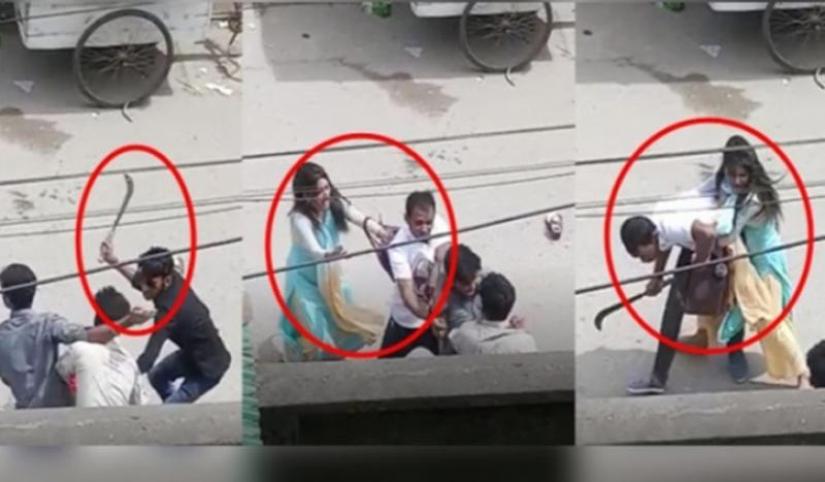 On Oct 3, 2016, a woman called Khadija was hacked indiscriminately at the premises of the MC College in Sylhet. The incident, recorded by camera video, went viral and showed many people witnessing the attack from a distance.
On Oct 3, 2016, a woman called Khadija was hacked indiscriminately at the premises of the MC College in Sylhet. The incident, recorded by camera video, went viral and showed many people witnessing the attack from a distance.
At that time, no one went to save Khadija; a similar attitude was noticed in the case of the recent hacking of Rifat in Borguna.
The video of Rifat’s hacking has triggered a social media storm based on the question: when people are in danger, should we help or just stand and record it on our phones?
Social scientists say that it’s natural to help a person in distress or danger but no one will offer help until s/he is assured of personal safety.
Meanwhile, law enforcers say, it’s important to record the incident on video because it will aid in the nabbing of the perpetrators.
A person can help but there is no law to force him/her to offer help.
Saying that people have stopped going to help people in danger due to lack of social ethics, professor Mesbah Kamal of the department of history, observed: “We have alienated ourselves from society; instead of doing what is humane, we are thinking about our safety only.”
Lawyer Tanjim Al Islam, said: “The person who recorded the incident on his phone thought it wise to switch on the camera instead of intervening because that would have meant entanglement with the law.”
Since the incident was recorded, the clip can work as a source of information and help in the catching of criminals; there is a social outcry because the video has become viral.
Deputy-commissioner of DMP’s cyber security team, Nazmul Islam, told Bangla Tribune: “If there is the opportunity then these events must be recorded on video. This can then work as invaluable source of information about criminals and help in catching them.”
A person can intervene but there is no law which makes intervention by a member of the public obligatory, he added.
 Others
Others
41406 hour(s) 5 minute(s) ago ;
Midnight 12:59 ; Tuesday ; Jul 08, 2025
Should a citizen protest a crime or record it on the phone?
Send
Udisa Islam
Published : 11:37, Jul 02, 2019 | Updated : 11:39, Jul 02, 2019
Published : 11:37, Jul 02, 2019 | Updated : 11:39, Jul 02, 2019
0 ...0 ...
/tf/
Topics: Top Stories
- KOICA donates medical supplies to BSMMU
- 5 more flights to take back British nationals to London
- Covid19: Rajarbagh, Mohammadpur worst affected
- Momen joins UN solidarity song over COVID-19 combat
- Covid-19: OIC to hold special meeting
- WFP begins food distribution in Cox’s Bazar
- WFP begins food distribution in Cox’s Bazar
- 290 return home to Australia
- Third charter flight for US citizens to return home
- Dhaka proposes to postpone D8 Summit
Unauthorized use of news, image, information, etc published by Bangla Tribune is punishable by copyright law. Appropriate legal steps will be taken by the management against any person or body that infringes those laws.
Bangla Tribune is one of the most revered online newspapers in Bangladesh, due to its reputation of neutral coverage and incisive analysis.
F R Tower, 8/C Panthapath, Shukrabad, Dhaka-1207 | Phone: 58151324; 58151326, Fax: 58151329 | Mob: 01730794527, 01730794528


